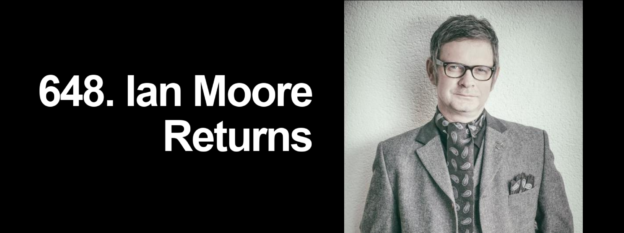A conversation with English-teaching stand-up comedian Elspeth Graty, which covers lots of different topics including Elspeth’s background in England, teaching English, cultural differences, “French-bashing”, old-fashioned telephones and The Tellytubbies. Enjoy!
[DOWNLOAD]
LEP Premium Promo
This podcast is made possible thanks to donations from lovely listeners (click a yellow PayPal button on the website if you’re feeling generous) and also the premium subscription, which costs, per month, slightly less than a pack of 80 Yorkshire Gold Teabags from Sainsbury’s. So if you would like to make sure I never run out of tea, then consider signing up.
There are now well over 100 audio and video episodes in the premium archive and you can access them all, plus new ones that are coming. That’s what you get when you become a premium lepster. To get all the information, including how it works and exactly how wonderfully reasonable the prices are – go to www.teacherluke.co.uk/premiuminfo
Introduction Transcript
Hello listeners,
How are you today? Doing alright all things considered? I do hope you’re managing to keep calm and carry on during this weird and difficult period of history that we are all experiencing.
Shall we start the episode? OK.
Here’s the second in a series of interviews I’ve been doing lately featuring people I’ve been meaning to talk to on the podcast for quite a while (quite a while — is that a short time or a long time? Quick answer: It means a long time.)
I just wanted to record natural conversations with some new guests so you can hear their voices, their stories, their thoughts so you can notice bits of language and practise your English listening as usual.
The first of these recent interviews was with Marie Connolly from Australia, which was the last episode of course. I hope you all enjoyed it.
This conversation is with a friend of mine called Elspeth who is from England.
Elspeth is an English teacher and she also does stand-up comedy in the evenings, which is how we met each other. Yep, she’s another English-teaching comedian friend of mine.
Explaining this episode’s title
The title of this episode is “Chasing the Tangent Train with Elspeth”.
The title is just a metaphor – please don’t expect a conversation about train travel!
It’s just a metaphor to explain the fact that this conversation is full of tangents and I hope you can keep up with it. In fact, it’s mainly tangents.
What is “a tangent”?
Long term listeners should know this, but plenty of people won’t know so let me explain.
In a conversation, a tangent is when the topic changes to something quite different and seemingly not related to the main point of that conversation.
It’s when you digress from the main point, go away from the main point or get sidetracked.
“To go off on a tangent”
There are lots of tangents in this conversation. So, for the title of the episode, I was trying to think of a way to describe the experience that you will have of just following the changes in direction in a conversation and seeing where it goes.
I ended up with “chasing the train”, which is not actually an expression you will find in the dictionary – I made it up.
Let’s imagine, then, that this conversation is a train and it’s going down the tracks and every now and then it switches to new tracks and continues for a while, then it switches to another new track and then does it again, and again and so on. Can you keep up with the train? I think you get the idea.
My overall aim for this interview was mainly to get to know Elspeth in more depth and to capture an authentic conversation to help you learn English. That is the destination for this train journey. But as I said, the topics move around a bit, which is totally normal in a conversation. Just ask David Crystal, he wrote a book all about it and he’s a professor and definitely knows what he’s talking about.
What I’m getting at is that this might be hard for you to follow – depending on your level of English.
So you’ll have to focus.
Nevertheless, I can help you keep up with this if I let you know what the main changes will be in advance.
So I’m now going to give you a quick overview of the main changes in topic in this chat.
The main points in this conversation are, thus: (these aren’t spoilers)
We talk about
- Where Elspeth comes from originally, and how her family moved around parts of England
- Being the daughter of a vicar (that’s her, not me obviously) A vicar is a priest in the Anglican church – the church of England. The cliche of the typical English vicar is that they wear black with a little white collar, they’re often softly-spoken grey haired men with glasses who ride bicycles around their parish and love drinking tea, eating cake and generally worshipping god.
- Our accents, which are not strongly affected by the region where we grew up (we actually come from the same general area in England)
- Having harvest festivals at church when we were children
- Then there’s a big, random tangent → Remembering the old dial telephones we had in our houses when we were children. Remember them? You had to put your finger in and turn numbers around a dial, and it went went kkkkkkkkk. You don’t remember? That must be because you’re young, or you’re old and you’ve lost your memory.
- Services you could get on the old analogue telephones, like the operator (a person who you could speak to and who would deal with your telephone-related enquiries) and the talking clock (a recorded voice that was constantly telling the time and you could call a number and listen to it)
- Coventry Cathedral in Coventry, which was almost destroyed during World War 2 but was rebuilt and is now definitely worth a visit if you’re in the city
- Elspeth’s life in France, her French, and whether or not she feels French or English after living here for quite a long time
- Some of the cultural differences between England and France that frustrate us a bit, like the usual things – being punctual, walking down the street and in particular, queueing – standing in line to wait for things in public
- Teaching English to young engineers, and the challenges that French students have when learning English
- Some of Elspeth’s experiences of learning French
- How Elspeth can behave slightly differently in English and in French, especially when doing stand-up comedy in the two languages
- Elspeth’s thoughts on her own clothing choices and fashion sense, and how people react to it, especially the Nike Air Max trainers that she wears
- Teaching English online using Zoom – and what that is like
- Doing stand-up (going on stage and telling people jokes and stories to make them laugh) and Elspeth’s favourite and least favourite things about doing that
Where her inspiration for comedy material comes from and “flow activities” or being in a “flow state” - If there is a connection between stand-up and English teaching
- A little story about The Tellytubbies that Elspeth uses in her English lessons, which makes the students laugh (The Tellytubbies is a children’s TV show) The story involves The Tellytubbies, William Shakespeare, the county of Warwickshire in England and April Fool’s Day. Basically, the county council of Warwickshire played an April fool’s trick on the people of Warwickshire, and it involved The Tellytubbies and Shakespeare, and people didn’t like it.
- Why English people get into rages – like road rage, or trolly rage in the supermarket
- The concept of French-bashing (criticising or making fun of the French and French culture) and why Parisians seem to complain about each other’s behaviour quite a lot (Parisians are people living in Paris)
- How people’s behaviour in public in Paris compares to behaviour in the UK and in Tokyo
- Things we love about France – because there’s a lot to love about this country too
- Finally, a bit at the end where we both conclude that Paul Taylor is basically a cake – a delicious British cake.
Actually, reading out that list – it doesn’t seem like there are that many tangents, but there are tangents ok? What I’ve just given you there is the main flow of the conversation.
Right. Now that you have an overview of the track layout, let’s get this train rolling.
Let’s just get started. Here is my conversation with Elspeth, and here we go.
Luke’s fuddy-duddy slippers (a Christmas present from a couple of years ago)
Ending Transcript
Right, so that was my conversation with Elspeth. I enjoyed it a lot, especially because we have quite a lot in common, not least because we are from the same neck of the woods (a local area where someone lives).
How did you get on? Did you manage to follow it ok? Well, you must have done, because you made it. You’ve caught up with the train. You can have a rest now. Well done for keeping up.
I expect you’re getting out your phone now. If that’s what you’re doing, open up Instagram on your phone and check out Elspeth’s page, which is @elslostinfrance which I now realise would have been the perfect name for this episode, right?
Elspeth on Instagram
https://www.instagram.com/elslostinfrance/
I could do a lot of rambling on now, about all sorts of things, like what’s been going on and the WISBOLEP competition (which is now closed by the way – no more entries please. The deadline has passed, unless maybe you’re in a part of the world where it is still the 15th October – in which case, you have until midnight).
I’ve received loads of entries and let me tell you – it is going to be difficult to choose just one winner. There are so many really interesting recordings and stories of how people learned English and all kids of other things. It will be hard to pick just one person. Also I’m now wondering how I’m going to manage the whole thing. I’ve had nearly 90 entries. I don’t know why I didn’t expect to get so many.
Each entry is about two minutes long and so – 180 minutes, even without my comments (and I really want to make even very short comments).
Shall I play them all on the podcast? That’s a lot, isn’t it?
I think the best way to do it might be to make a YouTube video of all the audio (if that makes sense) and then I can add time stamps for each person, which will make it much easier for everyone to find each recording.
In any case, I will find a way to manage this. It could take a while though, so be patient.
I do want to re-state that it has been amazing listening to all the recording (I’ve had brief listens to most of the recordings sent). There are some awesome people in my audience. I just want to give a shout out to anyone who sent in a recording. Well done for plucking up the courage to do that. The competition is going to be a bit of a celebration of my audience from around the world.
Not much more to add here, except the usual mention of LEP Premium which you can find out more about by going to www.teacherluke.co.uk/premiuminfo I’ve been getting some very positive feedback about it. There are now over 100 episodes of LEPP now in audio and video form. Check it out to see what you’ve been missing.
I’ll be back again soon with another episode, perhaps one in which I just ramble on about all the stuff that I’ve been meaning to say on the podcast for a while, a few listener emails, some songs perhaps and more…
Let me say thank you again to Elspeth for her contribution to this episode. Thank you Elspeth.
Everyone: Hang in there. Keep your chin up.
Hey, do you want some anti-covid funk music to cheer you up? (Yeah)
OK. This is something that I recorded this morning. I probably should have been doing some work but after dropping off my daughter at school I suddenly felt compelled to play some bass, and one thing led to another and I ended up recording a little 2-minute funk groove. The drums are from a youtuber called Dimitri Fantini (link on the episode page). I needed a 90bpm 16-beat funk groove and he delivered. Credit to Dimitri for the drum track. I’ve added bass using my Mexican-made Fender P-Bass, some rhythm guitar with my Fender Stratocaster (also made in Mexico) as well as some string sounds which are from my Yamaha P-45 electric piano.
I called the track Funk in the Kitchen, because it’s supposed to make you dance in your kitchen, or indeed in any other location.
Brace yourselves – music is coming… In 5, 4, 3, 2, 1, let the funk commence…
Thanks for listening… Speak to you again soon… Bye!!












